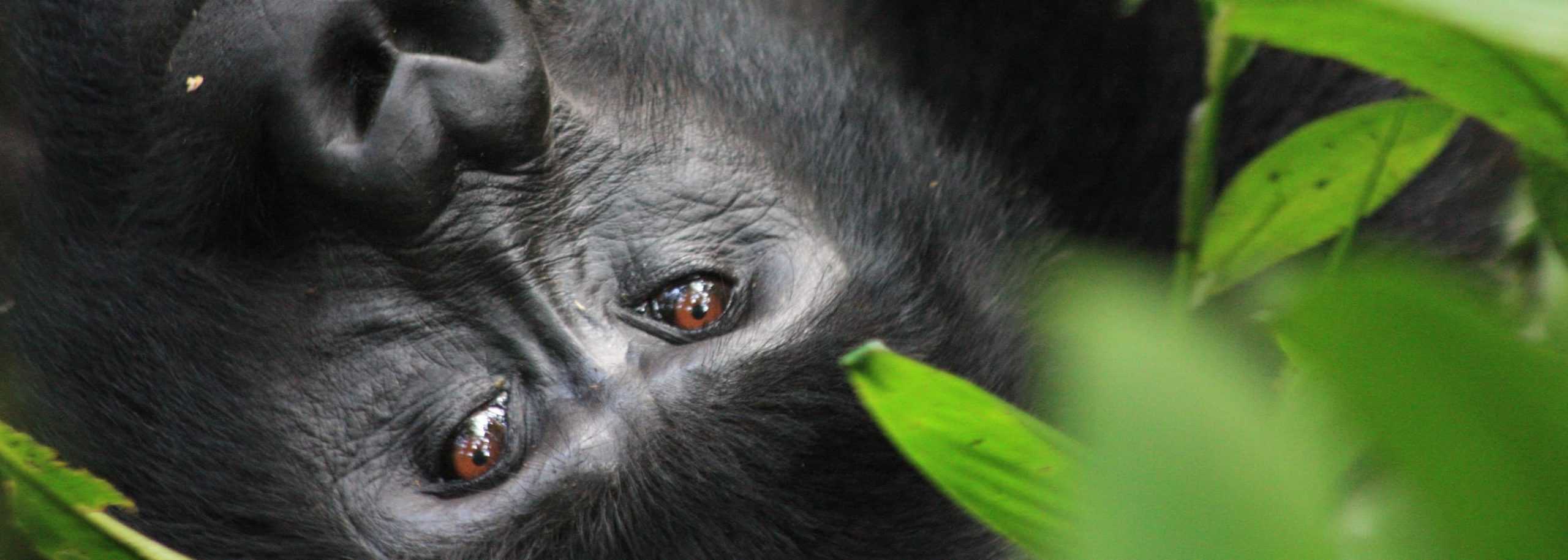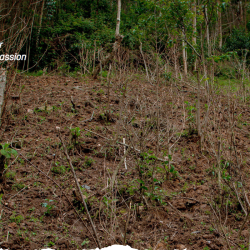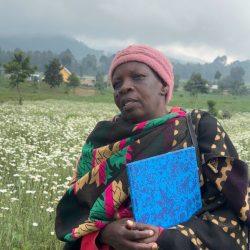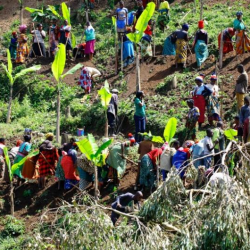Home-Made Organic Pesticides Boost Agricultural Harvest
Blog | 9/04/24
“Our seasonal harvest has enormously improved! Using home-made organic pesticides has restored hope to our farms. We have seen good results and even increased on the farmland for our vegetables,” says William Byamugisha, a farmer from Nombe Village, adjacent to Bwindi Impenetrable National Park.
For so long, Nombe Village residents in Rubuguri Town council experienced minimal yields from their farms mainly because of pests and poor farming practices. Regardless of how much farmers toiled the yields were always low or nothing at all, which meant inadequate food and income at the end of the day. “Thinking of a bumper harvest was farfetched! Plants, especially maize and vegetables were always attacked by pests and most of us were unable to afford the synthetic pesticides at the market. Farming had become frustrating” narrates Byamugisha.
Thanks to the Vanishing Treasures project that came in and introduced the farmers to climate smart and environmentally friendly farming practices. Among others the farmers were trained to make organic pesticides. According to Sarah Kigongo, these are more like repellants and not pesticides. They repel pests instead of killing them. This way, useful insects like bees which were facing a big decline due to use of harmful chemicals can be preserved to continue serving their purpose.
According to the farmers the use of organic pesticides coupled with other smart agriculture practices like the use of organic manure and digging trenches to control water run-offs, agricultural produce has greatly improved and so are the household incomes and livelihoods.
One William Byamugisha reveals that after the application of the above knowledge he was able to grow and make more from his cabbage garden. From about UGX 200,000 ($51) a season to a UGX 1,700,000 ($437) a season. “In the past, my cabbages would be small, and pest infested. The best I could sell a cabbage for was UGX 200 $0.053) but one year now into using the organic pesticides, my cabbages are bigger and healthier looking. Each cabbage goes for minimally at UGX 1000 ( 0.26)” says Byamugisha.
Farmers love and have embraced the use of organic pesticides on their farms for several reasons including being affordable, effective, accessible, and environmentally friendly. “The organic pesticides are easy to make. We use local plants that are readily available in our gardens, meaning that one can make enough for their farms at a time. They are also time saving” says Juliet Marinette. Juliet explains that previously one would spend about UGX 40,000 ($ 10.5) on the pesticides that were hardly enough and at least 3 hours to and from the market to purchase them, but not anymore. This time is now used to do other chores at home.
On the other hand, Karibu Dian, another beneficiary credits home-made for being accessing and indeed an easy solution to save crops and enhance yields. “I had totally stopped maize farming because of pest-raids. It was so frustrating watching my efforts go down the drain when my maize would be pest-ridden just halfway their growth span. With this vanishing treasures initiative, I can confidently say that my maize harvest has doubled.” Says Karibu.
Speaking of the initiative, Bafaki Charles a beneficiary credits organic pesticides for keeping pests off without damaging the environment. “Before the exotic pesticides we used could often destroy the surrounding environment. Grasses and bushes would dry out and small insects would die, which totally different with organic pesticides as they only weaken the pests.”
Stanley Bizimana, LC1 Chairman for Nombe Village credits the introduction of organic pesticides for preserving the environment and the vanishing treasures. “The fact that these pesticides do not kill insects is a good thing especially for the useful insects like bees which help with pollination. Without bees then we are doomed. Our farming entirely depends on their existence!” Stanely says bees are a treasure we cannot afford to lose.
Stanely is grateful that the project is helping to restore the bees which had previously been affected by the pest. With the soil being conserved, bees being preserved, and other harmful insects repelled, I am optimistic that better days are here! Stanely adds.
Over 120 households and 600 individuals have been skilled in making organic pesticides and are applying this knowledge on their farms. All the farmers testify to better yields, increased food for consumption and sale, increased incomes and more.




